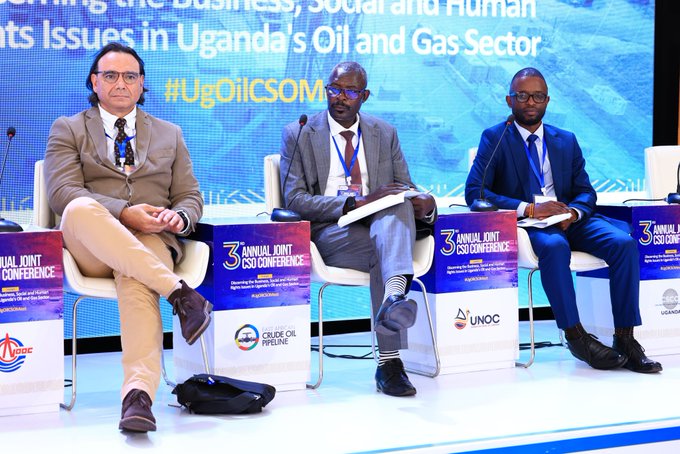Oil Flow Delayed Again: Government Sets New 2026 Target
According to Mugisha, the adjustment in the timeline stems from delays in establishing key infrastructure required to support commercial oil production.

The Government of Uganda has once again revised its timeline for the commencement of oil production from the Albertine Graben, with new projections indicating that the country’s first oil is now expected to start flowing by the end of June 2026.
The announcement was made during the Third Annual Joint Civil Society Organisations (CSO) Conference held in Kampala, where Mr. Frank Mugisha, the Assistant Commissioner at the Ministry of Energy and Mineral Development, represented the Minister of Energy and Mineral Development, Hon. Ruth Nankabirwa.
According to Mugisha, the adjustment in the timeline stems from delays in establishing key infrastructure required to support commercial oil production. These include the East African Crude Oil Pipeline (EACOP) and the oil refinery, both of which are central to Uganda’s oil development plan. The government has consistently emphasized the need to ensure that the legal and regulatory frameworks are in place before oil production can begin.
“Before you begin producing oil, you need to have the right laws, policies, and infrastructure. We are steadily progressing in all these areas,” Mugisha told delegates at the conference.
Minister Nankabirwa, in a statement delivered on her behalf, revealed that the development of the country’s flagship oil projects the Kingfisher Development Area in Kikuube District and the Tilenga Project in Buliisa and Nwoya districts is currently at approximately 60% completion. The Kingfisher Project is being developed by China National Offshore Oil Corporation (CNOOC), while the Tilenga Project is spearheaded by French oil major TotalEnergies.
The revised timeline signals cautious optimism from the government, which has over the years faced mounting pressure over the delays in realizing the long-anticipated oil revenues. Initially, Uganda’s oil was expected to start flowing as early as 2025, but setbacks ranging from infrastructure bottlenecks and financing hurdles to environmental concerns and legal processes have pushed deadlines further into the future.
Despite the challenges, government officials have reaffirmed their commitment to ensuring that the oil sector is developed in a sustainable and inclusive manner. This includes engaging local communities, strengthening local content, and enforcing environmental safeguards.
As the 2026 target draws closer, focus will now shift to the timely completion of the EACOP and other key installations, as well as the capacity of institutions tasked with regulating the sector. Industry stakeholders are watching closely, hopeful that Uganda is finally nearing the long-awaited milestone of becoming an oil-producing country.







